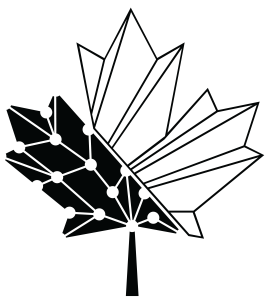- Home
- Canada’s Critical Mineral Diplomacy: How to Supply the World and Reduce Over-Dependence?
Canada’s Critical Mineral Diplomacy: How to Supply the World and Reduce Over-Dependence?
Canada’s Critical Minerals Strategy is unfolding at a pivotal moment in global affairs. As geopolitical rivalries intensify and the energy transition accelerates, critical minerals have become the backbone of civilian and defense technologies ranging from semiconductors to batteries and electric vehicles. Canada’s 2022 Critical Minerals Strategy (CMS) seeks to position the country as a global supplier of choice while reducing reliance on China.
What is the Project?
This partnership initiative brings academia, industry and think tanks together to investigate and evaluate Canada’s critical mineral diplomacy. By studying Canada’s partnerships, trade and investment agreements, export financing, soft power tools, and unilateral trade interventions, the project seeks to understand Canada’s position in critical mineral and metal supply chains from upstream mining to downstream applications.
It asks a simple but pressing question: How effective are Canada’s instruments of economic statecraft in delivering secure and sustainable critical mineral supply chains that connect Canada with the world while reducing over-dependence on China?
Over three years, the project will deliver
- High-level frameworks: Mapping and understanding policy objectives, instruments and interlinkages within and across Canada’s critical minerals statecraft and diplomacy.
- In-depth case studies: Assessing current state, gaps and future opportunities within and across different dimensions of Canada’s critical minerals statecraft and diplomacy through case studies of specific governance instruments (e.g. mineral partnerships, trade restrictions, political risk insurance).
- Forward looking recommendations: Aggregating project insights into actionable policy recommendations for government and business.
Why it Matters
Critical mineral supply chains sit at the crossroads of competing but interlinked values:
- Prosperity – underpinning industrial growth, technological innovation, and future jobs.
- Security – ensuring resilience against shocks and reliable access for defence and high-tech industries.
- Sustainability – enabling the energy transition while balancing environmental and climate objectives.
- Equity – raising questions of fairness, indigenous rights, and the equitable distribution of benefits across communities and nations.
By bridging academia, government, and industry, this project contributes to Canada’s capacity to act as a reliable, forward-looking partner in international critical mineral governance and helping the country thrive in an era of geopolitical competition and rapid technological change.
Meet the Team
 Wolfgang Alschner is a Full Professor at the University of Ottawa’s Faculty of Law and holds the Hyman Soloway Chair in Business and Trade Law. A recognized expert in international economic law, he specializes in using empirical and data-driven methods to study trade and investment agreements. He leads innovative projects that combine legal analysis with computational tools to better understand global economic governance.
Wolfgang Alschner is a Full Professor at the University of Ottawa’s Faculty of Law and holds the Hyman Soloway Chair in Business and Trade Law. A recognized expert in international economic law, he specializes in using empirical and data-driven methods to study trade and investment agreements. He leads innovative projects that combine legal analysis with computational tools to better understand global economic governance.
 Patrick Leblond is an Associate Professor at the University of Ottawa’s Graduate School of Public and International Affairs and the CN–Paul M. Tellier Chair on Business and Public Policy. His research focuses on international political economy, trade policy, and economic governance. He has published widely on Canada’s role in the global economy and is regularly consulted by governments, international organizations, and the media on issues of trade and finance.
Patrick Leblond is an Associate Professor at the University of Ottawa’s Graduate School of Public and International Affairs and the CN–Paul M. Tellier Chair on Business and Public Policy. His research focuses on international political economy, trade policy, and economic governance. He has published widely on Canada’s role in the global economy and is regularly consulted by governments, international organizations, and the media on issues of trade and finance.
Events
Canada’s Emerging Critical Mineral and Metal Diplomacy
This public panel kicked off this research project at the University of Ottawa, funded by Canada’s Social Sciences and Humanities Research Council, to explore the transnational dimension of Canada’s critical mineral strategy. Over three years, this project, in close collaboration with industry, civil society and public stakeholders, will map and analyse Canada’s CMM diplomacy and domestic flanking measures with a view to produce new research, frameworks and actionable policy recommendations.




